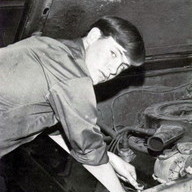Better Writing Is Worth Some Effort
When I was in the inspection business and the topic of report-writing would come up, I noticed a certain percentage of inspectors would react as if they were above improving their writing skills. They didn't consider it important. They'd been writing they way they'd been writing for their entire adult life and they thought they wrote just fine.
Maybe they were right, maybe not. What those inspectors don't know is how many people are turned off by the way they write. How many people stop reading when they run head-first into some of their bad habits? How many of your clients never get your meaning because your writing obscures it?
What are your bad writing habits costing you? Which busy real estate attorneys don't refer clients to you because your reports are difficult to read?
The newspaper business is in a lot of trouble. It's fighting for survival and no outlet can afford to lose a single reader. Newspapers study what draws people in and what turns people off the way I study a restaurant's beer list on a menu before I agree to eat there.
There are lots of ways a reporter or an inspector can shoot themself in the foot when writing something they want people to read. Whoever is teaching these methods in home inspector schools is doing a great job because as near as I can tell they've got near-total market penetration.
Newspapers have discovered what you might have guessed: Humans are lazy readers. We scan newspapers and websites for headlines that might interest us. In doing so, we probably pass by important stories that might well inform or entertain us, but we don?t care. We're busy people.
When we start reading a story, we often stop after just a few lines. If the story isn't what we're looking for, or the writing is hard to understand, we move on.
The people reading your reports are no different, so every comment in your report should be interesting or at the very least, relevant. We also have limits to how long we want a story to be. Get to the point in a reasonable period of time or we're gone. We're also sensitive. If you offend or bore us, we're gone.
A well-written report complements a great inspection and a poorly-written one muddles it. In addition to your clients, their attorneys are going to read your work. It's worth putting a little effort into writing the most impressive reports you can. (Editor's note: complement and compliment are different words)
You bust your ass to find the defects, you should put some effort into presenting them clearly and professionally. It will bring you more and better referrals than dropping doughnuts off at a real estate agent's office.
Here are a few easy, general tips you can use to improve your writing:
Spelling counts
The last thing an inspector should do before printing or sending a report off to a client is spellcheck it. It's a fast, easy, free way to improve your work. Everyone should be doing this every time. Misspellings make you look bad and avoiding them is easy.
Your and you're (and yore), its and it's
These words mean very different things. Learn to use them correctly. Your friends may not care if you mix them up in emails, but people are paying you good money and you owe them a good report. Misusing common words gives readers the impression you are too lazy/sloppy/dumb to know the difference. You can do better. It's not difficult.
I vs. We
This hardly deserves discussion, but it's a pet peeve of mine. One inspector, one author, singular pronoun (I): no debate. I've yet to hear a reasonable argument against this. Using "we" doesn't make you sound smarter or more professional.
Active vs. Passive
This one has been talked about for as long as I can remember, but it's always worth revisiting briefly for those who forgot or are new to the profession. Always avoid the passive voice (e.g. Corrosion was observed on the bottom of the water heater). It makes you sound unsure and vague and is considered a weak construction. Active, declarative sentences are always better in an HI report (e.g. The bottom of the water heater is corroding).
Photos
I only used them a few times and I realize that puts me in the minority. By and large, I think photos are way overdone in reports. My opinion is that they should be used somewhat sparingly. Focus on quality over quantity. When they are essential or helpful to get your point across, use them. If you include 60 photos in a report, the important ones are likely to get lost among the less important ones.
Use complete sentences
If it's worth telling your client about, it's worth a whole sentence. That's how professionals communicate.
Don't Write Like You Speak
There are loads of phrases I might use in conversation with a client that I wouldn't use in a report. Things like: The deck looks like it was built by Uncle Meanswell and Cousin Thirtypack (credit: Gary Blum). Write better (more clearly and precisely) than you speak.
That'll do for now. More to come.
Email Jimmy questions, comments or send him some of the worst HI writing you've seen at: JamesAndrewMorrison@gmail.com
Edited by Administrator






Recommended Comments
There are no comments to display.
Create an account or sign in to comment
You need to be a member in order to leave a comment
Create an account
Sign up for a new account in our community. It's easy!
Register a new accountSign in
Already have an account? Sign in here.
Sign In Now